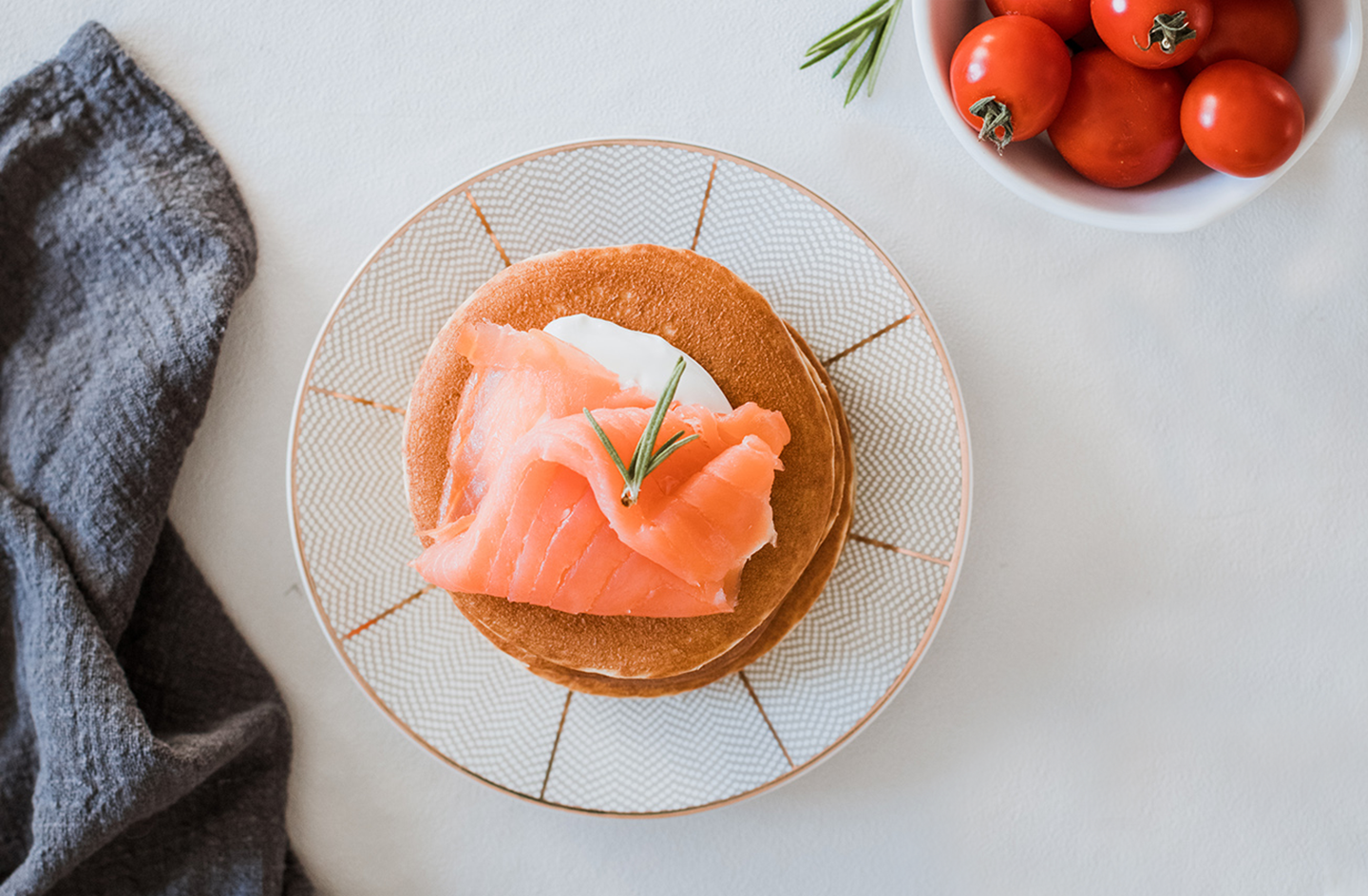Why it’s important to balance breakfast
Even the most recent scientific studies have confirmed that breakfast is the most important meal of the day. The benefits provided by the assimilation of nutrients after a night's rest include, for example, better mental clarity, a greater sense of satiety in the early morning hours, and optimal energy intake during the day’s other meals. All this, however, is available on one condition: that it’s a balanced breakfast.

Why is it important to balance breakfast? Based on experience, Equipe Enervit suggests taking these four steps to learn how to prepare a balanced breakfast to put anyone in position to achieve the benefits listed above in the medium to long term. People often skip the morning meal either because of time constraints or because they don’t consider it that important. Instead, when given the opportunity to sit at the table, in many cases they consume it quickly without paying attention to the foods selected. The result, which is negative, is a return to hunger after a short time.
1. Eat breakfast within an hour of waking up
For maximum benefit, the best choice is to eat breakfast within an hour of waking up. Beyond 60 minutes, you will further deplete glycogen reserves stored in the liver and muscle protein used during the overnight fast. On the other hand, for those who choose to work out on an empty stomach upon waking up, the best choice is to eat breakfast within 30 minutes of the end of the workout.
2. Balance nutrients
Studies by Equipe Enervit have shown that eating a Zone breakfast (i.e., balanced so that calories are derived 40 percent from carbohydrates, 30 percent from protein, and the remaining 30 percent from fat), provides important benefits related to satiety and alertness. But how is such a balance achieved?
First, the ingredients must be of high quality. Here’s an example:
- Carbohydrates - spelt, rye, barley, oats (ancient grains with a favorable glycemic impact
- Protein - low-fat yogurt (Greek or soy yogurt are also fine as an alternative), cottage cheese, or egg whites (white of the egg)
- Fats - walnuts, almonds, sesame or flax seeds
But how can we combine them? A good balanced breakfast – in addition to providing calorie intake according to the 40-30-30 formula, should contain 0.3 g of protein per kg of body weight. Let's see two practical examples calibrated to an average daily requirement of 20 g of protein:
- 80 g cow's milk ricotta with 140 g raspberries and a sprinkling of cocoa
- 4 scrambled egg whites, accompanied by 20 g of toasted whole-wheat bread
- 2 walnuts
Or:
- 40 g of toasted whole-wheat bread
- 60 g smoked salmon
- 30 g cream cheese spread
- 1 kiwi or 1 small fruit
- 6 almonds
Our busy lives, however, don’t always allow us to eat breakfast like this. One can turn to supplements of milk or plant-based protein (such as pea and rice protein), depending on one's nutritional preferences. In addition, the EnerZona line includes a variety of products designed to ensure the perfect 40-30-30 balance. Examples include gluten-free pancakes with no added sugar, and balanced shortbread.

3. Add a hot or warm beverage
To benefit from the rehydrating effect and promote better absorption of micronutrients by the body, it’s advisable to add a hot or lukewarm drink to breakfast, depending on the season: tea (green or white), or coffee or barley drink, preferably without sugar.
4. Take high-quality omega-3s
The benefits of omega-3 fatty acids from marine sources are widely known. So, better take advantage of them. The advice is to take them immediately after breakfast (with a glass of cool or room temperature water) to best activate the mind. But it’s important to remember that not all omega-3s are the same. Therefore, it’s best to always choose those with I.F.O.S., Orivo, and Friends of the Sea certifications. If you prefer capsules instead of a liquid formulation, those with Entericare® technology will improve absorption by the body and reduce the risk of aftertaste.
BIBLIOGRAPHY
Elena Casiraghi, Nutrition is not competition, Cairo Editore 2020
Rong S, Snetselaar LG, Xu G, Sun Y, Liu B, Wallace RB, Bao W. Association of Skipping Breakfast With Cardiovascular and All-Cause Mortality. J Am Coll Cardiol. 2019 Apr 30;73(16):2025-2032.
Irina Uzhova, Valentín Fuster, Antonio Fernández-Ortiz, José M Ordovás, Javier Sanz, Leticia Fernández-Friera, Beatriz López-Melgar, José M Mendiguren, Borja Ibáñez, Héctor Bueno, José L Peñalvo. The Importance of Breakfast in Atherosclerosis Disease: Insights From the PESA Study. J Am Coll Cardiol 2017 Oct 10;70(15):1833-1842.
Barry Sears, The Positive Nutrition, Sperling & Kupfer 2017
N S Gajre, S Fernandez, N Balakrishna, S Vazir. Breakfast eating habit and its influence on attention-concentration, immediate memory and school achievement. Indian pediatrics, 2008 Oct;45(10):824-8.





